Star Wars is not a series of movies. It’s not a collection of interconnected stories. And it’s not a genre. Star Wars is instead a place, a universe, a setting for a series of movies and other interconnected stories.
Now, Star Wars is being refreshed, but it’s still Star Wars. While the events are different, the things are still the same. Same alien species, same ships, same planets.
Star Wars began as a film in 1977, though a novelization and comic adaptations of that original movie actually predated it. By early 1978, the Expanded Universe was off and running with the Star Wars comics by Marvel a huge success and Alan Dean Foster’s Splinter of the Mind’s Eye novel serving as a backdoor blueprint for a sequel that was never made — it told a story that was decidedly not The Empire Strikes Back. The Marvel comics continued well into the ’80s, and the real meat of the EU kicked off in 1991 with Timothy Zahn’s Heir to the Empire. Hundreds of novels and comics and video games and 23 years later, Disney, upon purchasing LucasFilm and getting the ball rolling on a new sequence of movies, decided to wipe the slate clean on the Expanded Universe, leaving only the six previous films and the Clone Wars TV series as the basis for what is in effect a rebooted franchise.
The best Star Wars authors, whether it be in books, comics, TV or movies, knew that this galaxy is a lived-in place, and it has rules and a framework that they broadly operated within — it’s not really that different from writing fiction about our world. Those stories have since been erased from the timeline, but we still remember them. And the framework they established is still useful.
Leland Chee at LucasFilm has spent the last 15 years compiling a database of all the shit we’ve ever seen in Star Wars, and they’re holding onto as much of that stuff as they can. Because it’s by that stuff that we recognise Star Wars as Star Wars, even as we, the most hardcore of hardcore Star Wars nerds, venture into this unfamiliar territory.
Enter Aftermath, the first Star Wars novel set after the original trilogy in the new united continuity. Aftermath is part of, and the centrepiece of thus far, a new branded series of ancillary materials called The Journey to The Force Awakens. There’s a lot of ground to cover between movies (30 years or so), and having a title like “Aftermath” implies it will go after a good chunk of it.
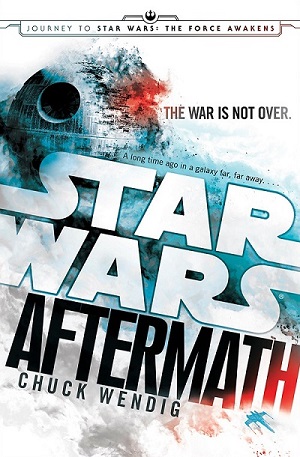
It picks up some months after the destruction of the second Death Star and the deaths of Darth Vader and the Emperor, and purports to show us where things went from there — how the Rebel Alliance began to form a proper government, and how the Empire has begun to crumble now that its head has been chopped off, and what they’re doing to try to stave off an ultimate defeat.
This new piece of Star Wars lore tells a rather mundane story. It is effective in giving the reader a broad feel for the situation in the galaxy in the wake of the Battle of Endor, thanks mostly to a series of brief “interlude” chapters that hop around to various places to see how the changing political situation is affecting random folks. And the idea of some Imperial power players gathering for a secret meeting to figure out how to keep the Empire from falling apart is very intriguing. It’s also familiar, because the old Expanded Universe contained 15 years of stories about the Empire trying and failing to get its shit together.
But the main plot actually functions as an odd aping of the original Star Wars film (with a far less meaningful series of events), which is the sort of narrative that does not work after 38 years of storytelling in this universe. There’s a sentiment, coming from the sorts of people who don’t get the full scope of Star Wars, that Star Wars stories have to be a very specific sort of light and fun action/adventure/fantasy thing. Aftermath feels like the product of that idea. There’s no room for behind-the-scenes development or scheming — only high-scale, flashy adventures. But Star Wars exists in a universe with a thousand stories already told and a thousand more on the way. Authors creating new lore have to acknowledge that.
The latest chapter in Star Wars lore has another problem, and it’s an issue I’ve seen come up a number of times before: a lack of concern for the particulars of the universe that serve to ground the most hardcore fans even in unfamiliar territory. Aftermath is the very definition of “unfamiliar territory,” since it represents the first step forward in the rebooted Star Wars continuity.
One line, for instance, references a smuggler ship called the Moth, which carried protagonist Norra Wexley to Akiva, the planet on which most of Aftermath takes place: “Looks like a bog-standard smuggler, though. Flying a small Corellian freighter — an, ahh, let’s see, an MK-4.” This is, so far as I can tell, the first mention, ever, of a model MK-4 Corellian freighter. Wendig never describes what it looks like, nor does its classification imply that it would be similar to a familiar type of Corellian freighter. In fact, the classification “MK-4” does not follow the naming conventions of any previously established types of Corellian ships, and there are a lot of previously established Corellian ships. The Millennium Falcon, by the way, is a modified YT-1300 Corellian light freighter — if you didn’t understand before why we might get weird about Corellian freighters, that might help explain it.
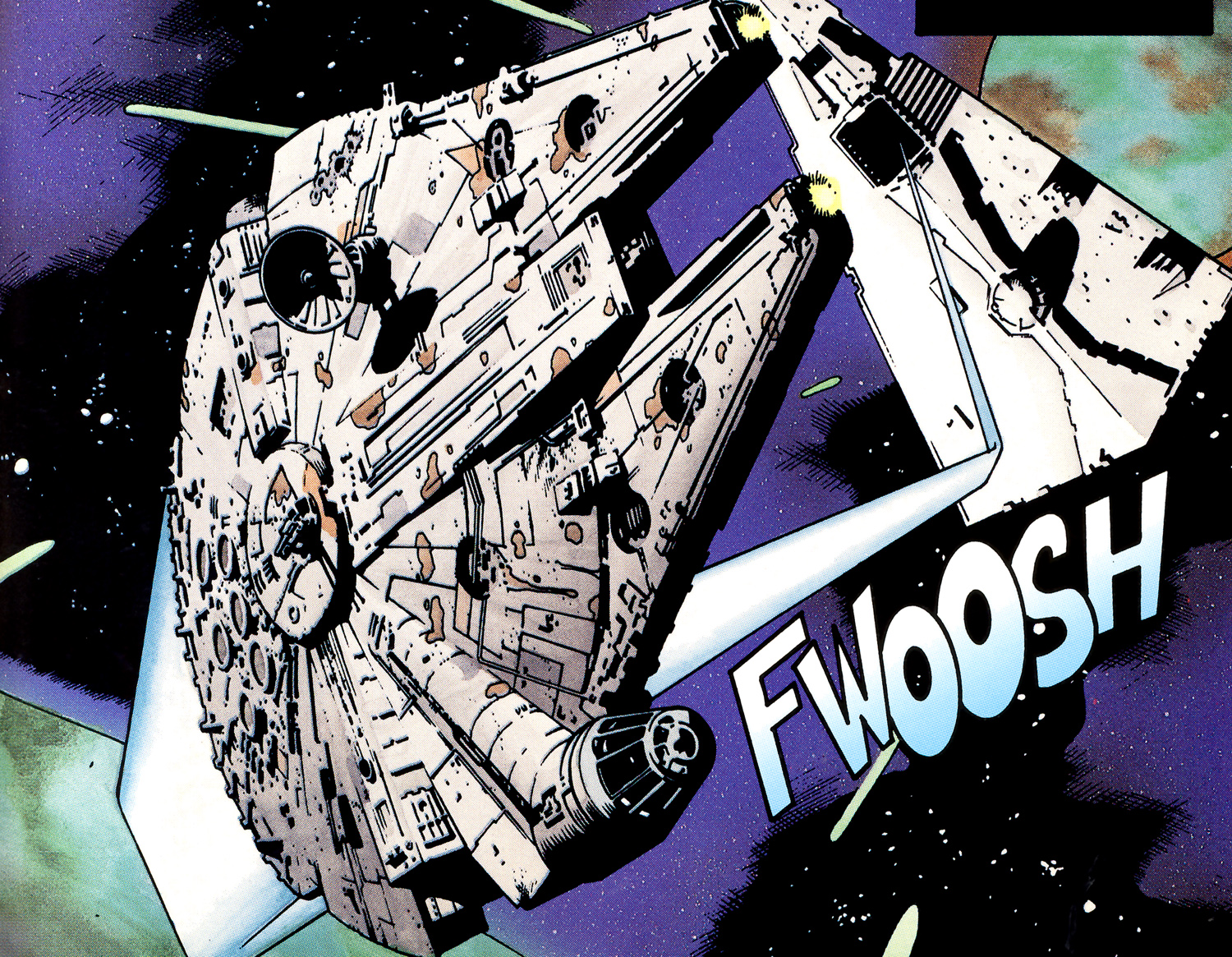
It seems like a small thing, but its effect is meaningful. The defunct old Expanded Universe canon is pretty well imprinted, and so moving forward in Star Wars fandom is always going to be uncomfortable to some degree as we try to understand the new order of things. There are ways to ease us through the transition, one of which would be to make liberal use of well-established terminology and ship types and whatever else is incidental to the story you’re trying to tell. There’s a ludicrous amount of that stuff in the archives, and so pulling from it whenever possible will make people feel more comfortable in this awkward time. Not doing so for no significant reason, on the other hand, is an easy way to make us uncomfortable.
Another line references existing lore in a way that betrays a lack of comprehension of it. “A Woman. Zabrak — or is it Dathomirian? Or Iridonian? He’s not sure of the distinction or if one even exists.” The distinction in race here isn’t important or even relevant to the story in Aftermath, just as it wouldn’t be meaningful for you to care what brand of white person I am. Since it doesn’t matter at all, that line just comes off as a weak attempt at fanwank that doesn’t really work because anybody who would know what all that means (fans of the Clone Wars show, mostly) would wonder why that line was even there.
This sort of issue has come up before, in two main instances: when Lucas Licensing first created the Expanded Universe continuity in the ’90s, and when the prequel films were released.
The prequels were bad. For people who aren’t like me — we’ll call them “normal” fans, no disrespect intended — that’s all it was. They were just massively disappointing and shitty. That’s a big deal, yes, but it could have been worse.
And it was worse for super-fans. To us, the prequels were an insult. Not an intentional one, probably. When writing the first new Star Wars films in a decade and a half, George Lucas did not set out to irritate his franchise’s most ardent fans. But irritate us he did, by not paying attention to the details as much as we did and still do.
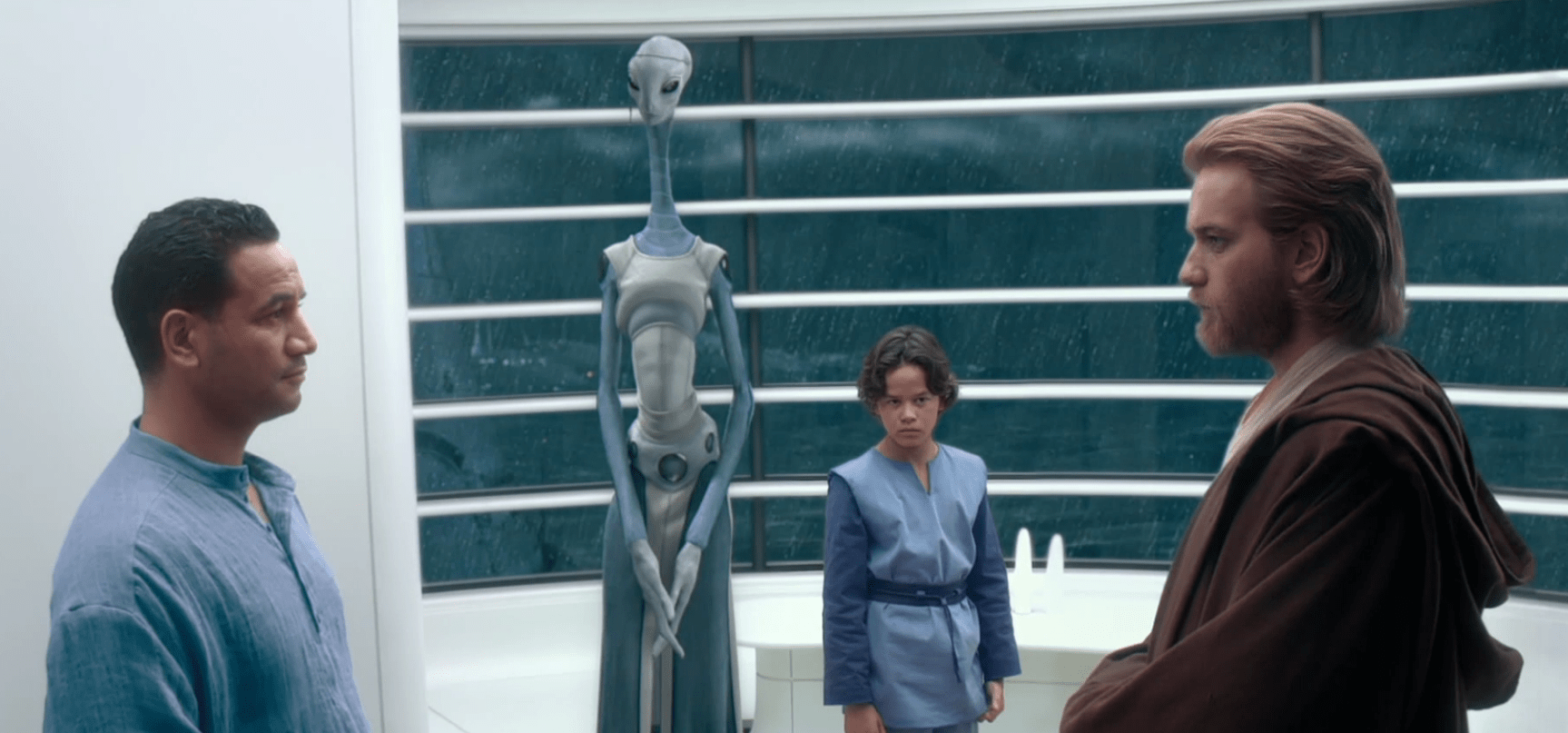
The Expanded Universe, we had always been told, was Star Wars canon. To us, it defined Star Wars. It did so because it explored that place far more thoroughly than a trilogy of movies ever could. The movies will always be what brought us to this place, but these other stories kept us there. Most people just visited Star Wars. Fans that obsessed over the Expanded Universe lived there.
I suspect George didn’t quite understand what he’d unleashed when he created Star Wars, even decades later as he was collecting royalties on the sales of a hundred novels that carried its branding. And when he decided it was time to make new films, I’d guess he probably didn’t think it was a big deal to just write them however he felt like writing them, acting as if he had a blank slate to build on the original trilogy.
The situation back then was not quite what it is now with The Force Awakens and this new sequel trilogy. Whereas the period after the original films has been heavily mined with new material, the Expanded Universe steered clear of the period before the films, where George would place the inevitable prequel trilogy. So unlike in this new era, there was no grand declaration of a canon reboot ahead of Episode I. There was, however, the qualification that any material written by George himself would supercede any of the Expanded Universe stuff. That, of course, was to be expected.
Being nerds of the highest order, Star Wars fans were certainly not opposed to retcons should they come up. Nerd franchises of all sorts had always been rife with them, as had the Expanded Universe itself — a natural occurrence given how out of control the EU had been. Bantam Spectra’s handle on continuity was solid in the broad strokes but the sheer density of the release schedule meant there were constant discrepancies in the smaller details. Some authors just wanted to do their own thing and didn’t understand the world they were writing for. So we were used to seeing those discrepancies arise and later novels try to reconcile them or at least recontextualize them.
By the time the prequels came around, the folks monitoring the EU had gotten enough of a handle on it that such occurrences became rarer. The key to a workable retcon is that you know you’re doing a retcon. It felt as though when George wrote that Jedi weren’t allowed to have romantic entanglements or that Boba Fett was the cloned son of a guy named Jango, that he just didn’t know they contradicted the existing continuity.
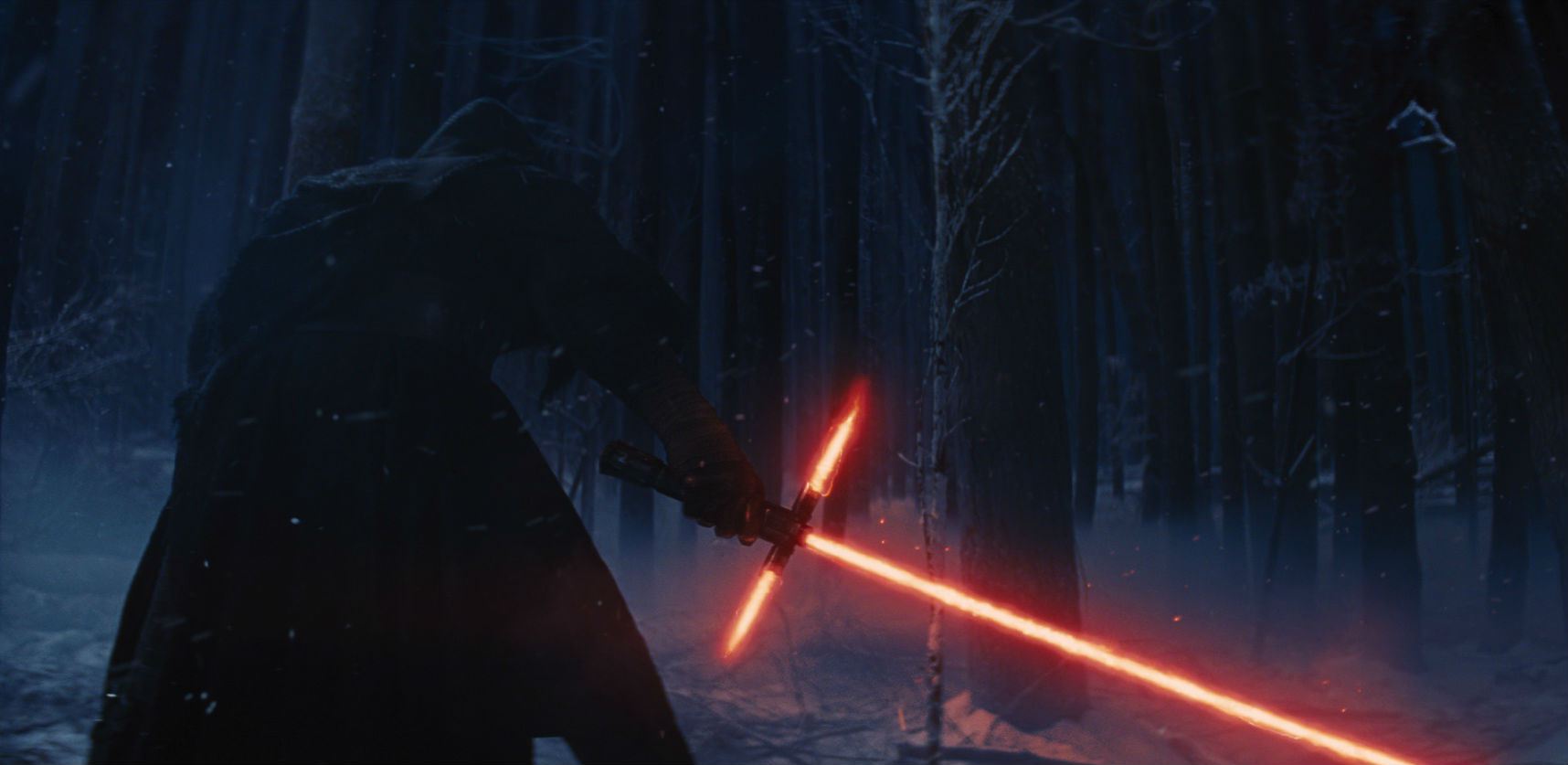
I’ve read Aftermath, pored over some of the new Marvel comics, watched Star Wars Rebels. This is the first ever official Star Wars canon reboot and it will take time to adjust. But this new version of the world still hasn’t established an identity. Maybe the movies will make real progress in that direction — they will at least be something more tangible to grasp on to — but for now it feels like its stumbling through the darkness, not really understanding what it is. And since I did understand what it was, the uncertainty makes this awkward transition all the more awkward.
I still have some hope; JJ Abrams and Kathleen Kennedy have said all the right things over the last couple years. But to look on the bright side: given the relatively tight handle the LucasFilm Story Group has on the new canon, it’s almost impossible to imagine anything on the horizon being as bad as The Crystal Star.
But never say never.
Phil Owen is a freelance journalist and author of WTF Is Wrong With Video Games, an ebook which is available on Amazon and Gumroad.
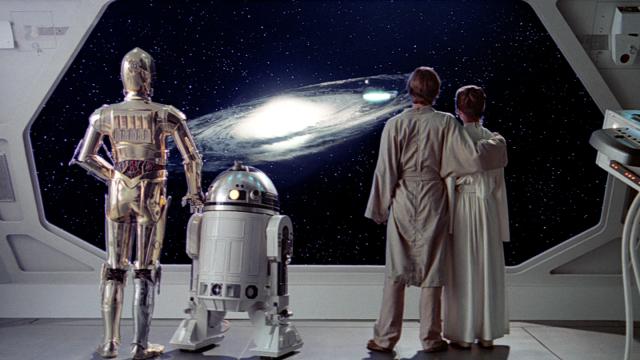
Comments
28 responses to “It’s An Awkward Time To Be A Star Wars Fan”
No. You were not told this, ever. You were told there were varying levels but not that it was all absolute. Lucas always stood by his comment that the movies were the movies and the EU was the EU, that it could be changed easily but that the movies were set in stone. It would essentially be its ‘own’ canon. He said he liked a lot of the EU, but he also loathed plenty of it. Some of it probably SHOULD have been canon, such as Heir to the Empire, but plenty of it should take out the back and be shot…
From Starwars.com
This is from wikipedia which explains it nicely:
Prior to April 25, 2014, Lucasfilm maintained an internal database called the Holocron for the express purpose of trying to maintain continuity within all licensed products.[18] The Holocron was originally sorted into four levels, reflecting LFL’s canon and continuity policies: G, C, S, and N. A fifth level, T, was instituted to comprise Star Wars: The Clone Wars and Star Wars: Rebels, as well as a sixth level, D, for Star Wars Detours. It is unknown if the current LFL decisions on canon are reflected internally. Below are the known levels of the Holocron prior to April 25, 2014:
G (George Lucas) canon is absolute canon. This category includes the final releases of the six films, the novelizations of the films, the radio dramas based on the films, the film scripts, and any material found in any other source (published or not) that comes directly from George Lucas himself. G canon outranks all other forms of canon.
T (Television) canon, which comprises Star Wars: The Clone Wars and Star Wars: Rebels. This level of canon is considered to take precedence over C canon (see below), possibly due to the fact that George Lucas is directly involved with these shows. This level does not include any series before (including the Genndy Tartakovsky Clone Wars series).
C (continuity) canon refers to the main body of EU work, and is the next most authoritative level of canon. All literature material published under the Star Wars label that doesn’t fall into either G, T, S, or N canon is C canon and is considered authoritative as long as it isn’t contradicted by G or T canon.
S (secondary) canon refers to older, less accurate, or less coherent EU works, which are immediately overwritten by anything in the main continuity of G and C canon, but are fully canon whenever they do not contradict something of higher canon. For example, this includes the popular Star Tours attraction, the MMORPG game Star Wars Galaxies, Star Wars: The Force Unleashed, Star Wars: Knights of the Old Republic, and certain elements of a few N-canon stories.
N continuity material is also known as “non-canon” or “non-continuity” material. Lego Star Wars, Disney Infinity, Star Wars Land, “what-if” stories (such as those published under the Infinities label) and anything else that cannot at all fit into continuity is placed into this category.
N canon is the only level that is truly non-canon.
D (Detours) canon refers to the canon of the animated parody television series Star Wars Detours. Despite being completely distinguishable from N canon, it is still completely non-canon. D canon is typically also classified separate from the other forms of canon.
But where in that list is Caravan of Courage?
Laughed. so. much. lol. But, apparently it is. It was a made for TV movie so it fits in with Rebels etc in that category.
It fits into the canon of my life long arachaphobia! Scared the shit outta my 8 year old self.
Wait… lego Star Wars isn’t Canon? NOOOOOOOOOOOOOOOOOOOOOOOOOOOOOOOOOOOOOOOOOOOOOOOOOOOOOOOOOOOOOOOOOOOOOOOOOOOOOOOOOOOOOOOOOOOOOOOOOOOOOOO!!!!!!!!!!!!!!!!!!!!!!!!!!!!!!!!!!!!!!
See, I’m not a massive Star Wars fan, and I get all that. I haven’t even read a single book of EU. I’ve watched the movies and played Jedi Knight/KOTOR/TOR, and that’s IT. But, to be honest, given the HUGE swathes of EU content that exist, and the fact that it would have been technically published and sold under the LucasArts/Star Wars banner (because there is no way it was getting published otherwise), and they signed on to that and profited from it – I’m sorry, but you reap what you sow.
If you agree to have all this content published and you’re RELYING on that for your maintained income and rabid fan base to prop up your IP which you hadn’t released a movie for in decades – then I’m sorry, but YOU DO have a responsibility to that lore. You AGREED to publish that stuff and reap the rewards. If you’re going to take the money for other people’s work with your IP, then you have to take some responsibility to not throw the baby out with the bathwater and just go “thanks for the cash, but bugger off with your ideas, here’s some midichlorians and Jar Jar Binks and Yoda lightsaber battles and people going underwater through THE PLAAANEET CORE.”
If you’re taking a healthy cut of the profits from letting other people play with your universe, then you can’t just toss them out because you can’t be arsed doing a proper job and ensuring consistency with their work. Hell, if you can’t be arsed doing that, then you’re basically admitting to just milking your IP for cash and you deserve all the damn backlash you get. If it’s fan fiction that’s given no credibility, just published by individuals and available on personal websites and the like and obviously contradicts existing lore or writing or the like, then sure, *that* you can ignore. But to create a whole tiered system of “this is canon unless we change it because we want to make a tv/movie to get more cash, or publish some other book…”, then you’re just disrespecting your own universe and fans.
If you truly love and respect your IP, your world, your creation and your fans, you’ll make sure that stuff gels together into one cohesive existence. Else it’s obvious all you really care about is the money – at which point the fans are well within their rights to leave you in the lurch when you take a dump on something that they care about.
“If you truly love and respect your IP, your world, your creation and your fans”
There’s the problem with George Lucas
3 words. Grand Admiral Thrawn. 🙁
This.
All of this. The whole concept of Grand Admiral Thrawn fascinated me, and his species along with it. Annddddd they’re gone 🙁
Dash Rendar
I’m holding out to hope that somehow Kyle Katarn make’s his way into the Rogue One story one way or another. He’s my all time favorite Star Wars character and it would be a shame to have him cut out of the story, as in my eye’s he’ll always be the one that originally stole the Death Star plans.
Katarn was fantastic……..until they made him a Jedi. Just seemed so cliche by that point.
Yeah I’ve got to agree with you on that. Katarn was SOOO much fun. And the whole Dark Forces game was one of the very first PC Games I ever bought when I was 10 years old. What a great game!
Believe me, the first time i saw the prototype dark trooper(before they had the storm trooper shell + jetpack) rushing me crazily with its sword arm scared the bejeebus out of me.
Tempted to try and make my old copy work. Still have the CD for it in my draw of all things awesome (and some bad music…).
Yep the fact that Katarn was an Imperial Officer prior to becoming what he was, is great. But i suspect now we might have something similar in the Force Awakens with a main character being a storm trooper. hmmm… just don’t feel the same.
Yeah, and to @weresmurf ‘s point, why does EVERYONE have to be a goddamn Jedi -_-
Rebels is okay on its own, its set in a time period where a lot of authors never wrote about and they have a fair bit of creative freedom to run with. It’s the post Jedi stuff that a lot of EU fans are going to have to grapple with (myself included) as the EU was out to nearly 45 years post ROTJ.
Thank you for mentioning The Crystal Star. 20 years later and I’m still annoyed at paying money for that book! Much to my shame it’s still on my shelf because it’s part of the the broader collection. Oh The Crystal Star, you were “Brink” of Star Wars books.
I just hope they get a string of new characters in. After reading dozens of EU novels there is no suspense left. How many times can the main characters get into almost guaranteed death situations and walk out without a scratch. I’m not saying to kill off every character every book but when the only characters with speaking lines in the movies who die is from old age it gets a bit ridiculous.
Have to agree with you on that. I loved the Timothy Zahn books, however a lot of others just felt like the characters were getting away with too much. I mean, I know plot armour is strong but Jesus!
Chewbacca is a main character and he was killed off heroically in the EU novels.
I’d say that would count.
(And yes he still had speaking lines, they were just in Wookie)
This, so much. New characters, please!
My favourite old-EU books were the X-Wing ones. Almost entirely a fresh cast of characters.
Strange that I read this, nodded along, shook my head occasionally… and still have nfi what Aftermath is about. Nothing at all. Uh…?
Regarding the EU I still find it bizarre that they didn’t make Shadows of the Empire canon. I remember the fanfare when it was released- GEORGE LUCAS MASTERMINDING THIS WHOLE NEW SIDE OF STAR WARS WOO!!! If George oversaw it surely they could’ve kept it? Not to mention it having my favourite bit of Darth Vader writing ever, with him using the dark side to heal his lungs, but his joy at being able to breathe freely breaking his dark side concentration and causing it to fail. Added a whole new dimension to the character that rarely gets touched on.
I think Shadows is… George actually talked about it, back in the day, and Dash’s ship got edited into a background shot or two for the late-90s rereleases
All I know is the aftermath book is garbage, hopefully it’s not a foreshadowing of the films.
Note that in 1980, George Lucas had 12-page outlines for each of the intended (at least) 9 films – the prequels (I-III) and the sequels (VII-IX). Saying that he entirely made up the films out of nowhere with no forethought towards canon for .. dare I say it .. his universe is simply untrue.